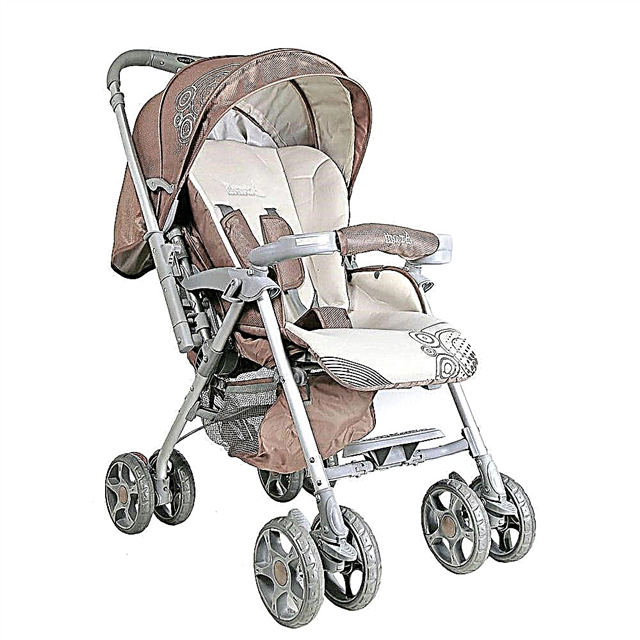
It is not uncommon for a child who does not want to sleep in his crib, which his parents so lovingly chose. This situation can occur at any age, and it can be expressed in different ways. But the problem is always much larger than it might seem at first glance. It is worth considering why the child does not want to sleep in his place, as well as how to accustom him to his crib.

Causes
A child may not want to sleep in his bed for various reasons. First of all, the bed can be uncomfortable. If the baby is physically uncomfortable in the crib, then he will show it with his whole appearance. The inconvenience can be caused by the following reasons:
- uneven mattress;
- hard or rough bedding;
- violation of the temperature regime - it is hot in bed;
- the location of the bed in the room - something scares the baby, there is an excess or lack of light, and others.
In addition to physical discomfort, the child may simply show his character. If the child is accustomed to sleeping together, and then quite naturally they try to evict him to a separate bed, the protest will be associated exclusively with psychological discomfort.
The reasons for the physiological properties are much easier to eliminate. But situations when a child does not sleep in a crib "out of principle" can have a rather long course, and require a lot of patience from the parents.


Should the choice of sleeping place be allowed?
Some parents calmly accept the child's refusal to crib, because they do not see anything unusual or abnormal in a joint dream. If the child is allowed to choose where to fall asleep, he will certainly lie with his parents. If a newborn is accustomed to sleep in the parent's bed from the very beginning, it will be quite difficult to retrain him with age. Sleeping between a child and parents has its pros and cons.
The pros are relative convenience. If the baby wakes up in the middle of the night to eat, the mother will not need to get up anywhere - the child will be at hand. Psychologists say that the closeness of the mother for the newborn plays a big role, but, alas, there is no convincing evidence for these theories.


There are more cons. And the main one is the inability to quickly wean the child from sleeping in the parent's bed. Adults can accidentally injure a child in a dream, the baby can suffocate (this also happens). Sleeping together does not always correspond to the rules of hygiene, and also practically does not allow a woman to get enough sleep, and both parents have no opportunity to lead a normal intimate life.
Everyone understands what this can lead to - families break up, couples get divorced, children grow up in single-parent families. It would seem that it is just a question of the place of sleep, and how serious and negative the consequences of an incorrect answer to this question can be.

What to do?
First you need to establish what reasons lead to such a child's dislike for their own sleeping place. If the baby slept in his crib, but not so long ago began to refuse such sleep, you need to reconsider the issues of convenience. The mattress needs to be bought so that the back of the child does not fall through, it is quite hard and even. Bed linen and clothes of the baby in which he sleeps must be sewn from natural fabrics. You need to choose underwear that is soft and pleasant to the touch.
The temperature in the room in which the crib is located must be kept at 21 degrees Celsius. A higher temperature can lead to increased sweating of the baby, to overheating. And also before going to bed, you need to ventilate the room - the "stale" air does not contribute to normal falling asleep and sound night sleep. It is advisable to avoid the presence of mirrors in the children's room, since in the dark they frighten the child. And also do not put the bed in a draft. It is not so difficult to create a cozy space with the use of your baby's favorite toys.
It is much more difficult to accustom the child to the crib after the toddler is used to sleeping together. The decision to evict the child from the parental bed is made once and for all. If mom and dad hesitate and change their minds, the process of accustoming to the bed will drag on for a long time and will take away a lot of strength and nerves from all participants in the process. It is recommended to place the baby's cot next to the parent's.


For convenience, it is recommended to remove one of the sides of the crib so that at night at any time the mother can reach the baby if he starts crying and worrying. But even in this case it is impossible to take the child into your bed. He should feel that his mother is relatively close, but he no longer needs to be taken under the warm mother's side.
At this stage, parents will need to clearly see the ultimate goal, go towards it, despite all the protests from the child. And he will definitely protest. In the first stage, it is important to remain calm and persistently stop the child's attempts to leave his crib and move to his parents. Falling asleep and the sad cry of a child can take up to several hours. But the child will fall asleep in any case - the physiological need for rest will take its toll.
Gradually, the bed is moved away from the parental bed a short distance, and the falling asleep itself will be shorter and shorter. How long it can take to get used to it is difficult to say. It all depends on the child, his character, the perseverance of the parents. Some manage to complete the training in a few days, while others take several weeks. A common parental mistake lies in indulgences that are suddenly made if the baby suddenly gets sick or another tooth begins to painfully cut through. They immediately take him back to them in order to calm and ease his condition. After this, you will have to start all over again, but this time the reaction to the eviction of the toddler will be even more emotional, the protest will become longer in time.

The opinion of Dr. Komarovsky
The famous pediatrician and TV presenter Yevgeny Komarovsky claims that there is practically no benefit in sleeping together. It is noticeably exaggerated. But if the parents still taught the baby to sleep with them, sooner or later they will surely face the need to wean him from the parental bed. And you also have to teach your child to fall asleep on their own, which is a rather laborious task. According to Komarovsky, on this path they are likely to face a disturbance in children's sleep. The baby may start to sleep restlessly, wake up often, even if earlier he easily and naturally fell asleep with his parents and slept all night. Sleep is disturbed, which inevitably entails certain changes in the regime. It is best not to allow them, says Komarovsky.
If the baby “fought” half the night for the right to sleep with his mother, and fell asleep in the morning, he must be raised as usual - at 7 or 8 am. The temptation to leave the baby to sleep will be great, but the mother will make a big mistake by allowing her to disrupt her routine. If the child is woken up, then by lunchtime he will be very tired and more likely to fall asleep without motion sickness and other rituals, and in his own bed. If this does not happen, you need to try to maintain the regime in the second half of the day. By evening, the little one will definitely be ready to fall asleep on their own.


Particularly stubborn and persistent children can harass themselves and those around them for up to three days. After this time, according to Komarovsky, it is usually possible to completely solve the problem of falling asleep independently, if the parents were rather persistent in their decision. Feeding that matches an afternoon snack doesn't have to be satisfying. A child who is undernourished will be more hungry for dinner, and after water procedures, having a good meal, will be able to fall asleep faster. If the baby cannot sleep, there may be two reasons - either he was overfed and it is physically difficult for him to digest such an amount of food, or he is not tired.
The child's leisure time throughout the day should be quite active, including walks, active and mobile games. Mom must do everything to make the child tired. Then accustoming yourself to going to bed on your own in your own bed will not seem like an overwhelming task.

To facilitate the task for himself and the baby, Komarovsky advises to carry out all daily actions in a strict, mandatory manner at the same time.
For information on how to wean a baby from sleeping together, see the next video from Dr. Komarovsky.



